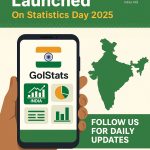In a powerful address during his Mann Ki Baat broadcast, Prime Minister Narendra Modi highlighted a compelling story of grassroots transformation in Jharkhand. He narrated the inspiring journey of Om Prakash Sahu, a youth from Gumla district—a region once plagued by Maoist violence, now emerging as a center of peace, entrepreneurship, and hope.
Sahu’s personal choice to reject violence and embrace aquaculture has not only changed his life but also ignited a silent revolution in his community. This blog post unpacks the story, its policy backing, and why it matters for the future of rural India.
🎯 The Story that Inspired a Nation
Headline: 🎣 From Maoist Shadows to Fish Farm Success: A Jharkhand Youth Leads by Example
Source: Mann Ki Baat (July 2025)
In his address, PM Modi shared the remarkable story of Om Prakash Sahu, a youth from Basia block in Gumla. In a region marred by violence, Sahu stood at a crossroads—join the ranks of conflict or choose a new path.
Amid social isolation and threats from extremist elements, he took the bold step to pursue fish farming. His persistence and courage soon inspired others. What began as a personal decision evolved into a community-driven movement for peace and livelihood.
“If the path is right and there is trust in the mind, the lamp of development can be lit even in the most difficult circumstances.”
— Prime Minister Narendra Modi
🌱 Gumla’s Shift: From Conflict to Community Entrepreneurship
The Basia block of Gumla was once known for deserted villages, out-migration, and Maoist presence. Today, it stands as an example of grassroots transformation in Jharkhand, driven by youth-led entrepreneurship and government intervention.
Thanks to Om Prakash’s initiative:
- Over 150 families have joined him in aquaculture.
- Many former Maoist members are now gainfully employed in fish farming.
- Local economies have revived, with jobs being created within villages.
- Social harmony has improved, rooted in shared economic growth.
His journey proves that rural revival doesn’t need to wait for urban models—it can begin from within, through community empowerment and local leadership.
🛠️ Policy Support: Pradhan Mantri Matsya Sampada Yojana
Om Prakash Sahu’s mission received vital support through the Pradhan Mantri Matsya Sampada Yojana (PMMSY), a government scheme aimed at strengthening India’s fisheries sector.
Under PMMSY, the community received:
- Training in aquaculture best practices
- Infrastructure support to build fishponds
- Financial assistance and subsidies for inputs
- Market linkages to ensure sustainable income
This blend of policy and personal effort created the right ecosystem for sustainable change, reinforcing the government’s role in nurturing rural entrepreneurship.
📌 Key Takeaways
- 📍 Location: Basia Block, Gumla District, Jharkhand
- 👤 Key Person: Om Prakash Sahu
- 🐟 Initiative: Fish farming as an alternative livelihood
- 🧱 Government Support: Pradhan Mantri Matsya Sampada Yojana
- 👨👩👧👦 Impact: 150+ families engaged in aquaculture
- 🌾 Transformation: From violence to employment and dignity
Naxal Affected Districts List Revised: Ranchi and Gumla Removed
💡 Why This Matters for India’s Development
This story exemplifies how targeted government schemes and individual resilience can come together to foster real change. It highlights a development model that is:
- Scalable to other conflict-affected regions
- Sustainable due to community participation
- Inclusive, empowering both youth and former extremists
- Aligned with national goals like Atmanirbhar Bharat and Rural Livelihood Missions
As India celebrates its 78th Independence Day, stories like Gumla’s underscore what true freedom means—freedom from fear, poverty, and hopelessness.
🏁 Conclusion
The grassroots transformation in Jharkhand, as seen in Gumla’s evolution, is not just a development story—it’s a blueprint for change. It shows how one person’s courage, coupled with strong governance, can rewrite the fate of an entire region.
From conflict to aquaculture, fear to employment, and darkness to hope, Gumla’s journey reflects what India can achieve when citizens and the state walk hand-in-hand toward progress.
Let us amplify such stories of change—because in every village, a revolution is waiting to begin.


